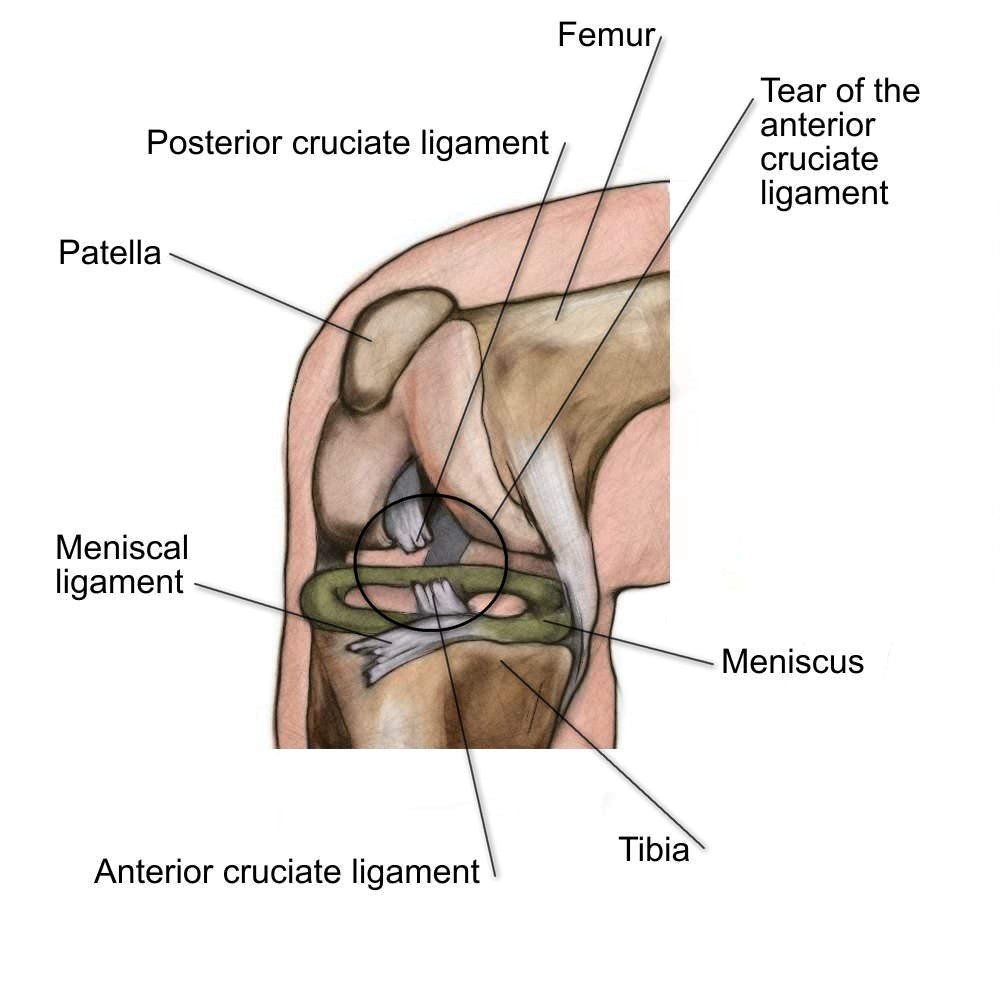Information for you about ACL tears
What is an ACL tear and how does it occur?
The ACL, or anterior cruciate ligament, is a strong piece of
connective tissue, which attaches the thigh bone (femur) to your leg bone
(tibia). The ACL provides stability to the knee joint as it prevents the tibia
from sliding forward relative to the femur.
ACL tears are a common sporting injury; however, can also occur
from everyday activities. The most typical mechanisms of injury are landing
awkwardly from a jump, twisting the knee, or suddenly stopping while running.
The ACL may also be injured during knee hyperextension, or when hit from the
outside. Often, other tissues surrounding the knee are also damaged, including
the medial collateral ligament, meniscus, joint cartilage, and bone surfaces.
The ligament can be stretched, partially damaged or completely torn.
What are the signs and symptoms?
Many people report hearing a “pop” in the knee along with
immediate pain and swelling. Decreased range of movement of the knee is common,
and the injured knee is typically unable to take full weight when standing or
walking. The knee may also feel unstable, with a sensation of “giving way”.
Poor balance and coordination may also be experienced. Smaller tears of the
ligament may have only mild symptoms, however, more severe tears will have more
significant pain, swelling and instability.
Is surgery necessary?
Traditionally, surgery was thought to be necessary for all
full-thickness ACL tears. A series of recent studies have shown, however, that
outcomes are often the same for people who chose surgery and those who don’t,
both in terms of recovery and future risk of osteoarthritis. Individual
circumstances will impact this decision; elite athletes and patients with
additional meniscal tears often do best with surgery. Generally speaking,
however, with time and full rehabilitation, many people can return to their
previous levels of activity without surgery.
How can physiotherapy help?
For both surgical and non-surgical recovery from ACL tears,
physiotherapy rehabilitation is essential for a full recovery. Your
physiotherapist will assist you with improving your knee’s range of movement,
lower limb strength, balance, stability and coordination. You will re-learn the
tasks of walking, using stairs, and negotiating obstacles with retraining of
your balance and control.
Early in rehabilitation, the RICE protocol (rest, ice, compress,
elevation) is used in conjunction with static resistance type exercises to
improve muscle contraction in the leg and increase blood flow in the area.
Throughout your rehabilitation program, you will progress
through a variety of strength and mobility exercises targeted towards your
individual needs, with goals of returning to your favourite sport or hobby as
soon and as safely as possible.
You can find out more about knee pain and what to do about it
here.
None of the information in this newsletter is a replacement for proper
medical advice. Always see a medical professional for advice on your individual
injury.
For more information or assistance please call the clinic on 028 92666959 or email at info@gavnoble.com
